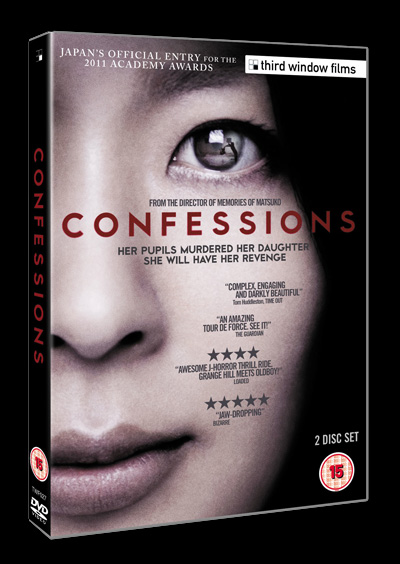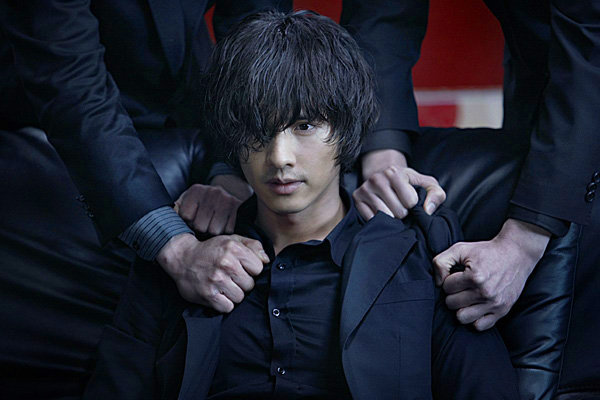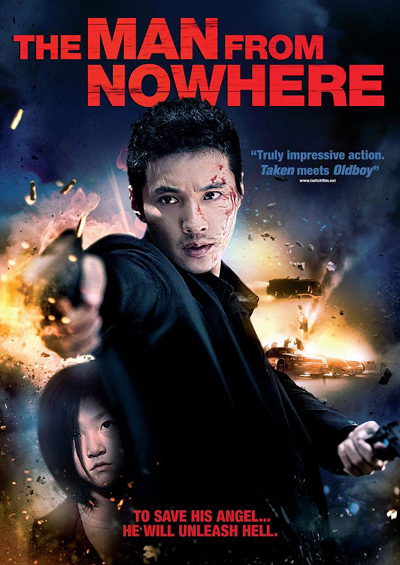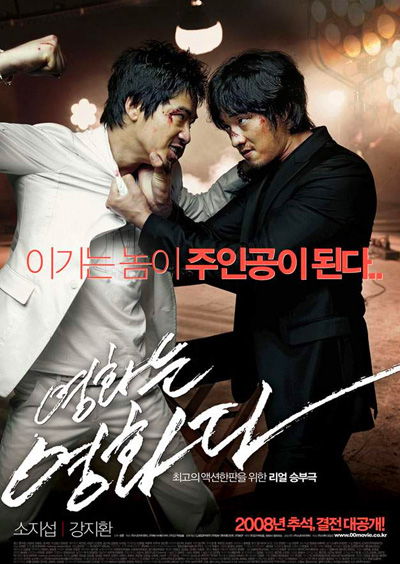 Confessions (2010), a harrowing tale of psychosis, child murder, AIDS, parricide and revenge, is currently winning awards. It just won Best Asian Film at the Hong Kong Film Awards and previously received Best Film, Screenplay and Director at the 34th Japanese Film Awards. It was also Japan's entry for Best Foreign Language Film at last month's Oscars. So who am I to dispute such accolades? I'm Pat Galloway, that's who, and I just will. For while there are some great things in this film, ultimately, in my opinion, the fundamental flaw of its execution is what defeats it.
Confessions (2010), a harrowing tale of psychosis, child murder, AIDS, parricide and revenge, is currently winning awards. It just won Best Asian Film at the Hong Kong Film Awards and previously received Best Film, Screenplay and Director at the 34th Japanese Film Awards. It was also Japan's entry for Best Foreign Language Film at last month's Oscars. So who am I to dispute such accolades? I'm Pat Galloway, that's who, and I just will. For while there are some great things in this film, ultimately, in my opinion, the fundamental flaw of its execution is what defeats it.And what might that be? Confessions is an adaptation of a novel by Kanae Minato, and moves from one first-person confession to another of a group of people brought together by a murder. Narratively, this concatenation of personal admissions works fine in a novel; film-wise -- not so much. What results is a near nonstop voiceover throughout the film. Blah, blah, blah, the chatter never ends. After awhile it gets to be somewhat unnerving. Film is a visual medium, and telling a story with images is its primary strength. Ironically, filmmaker Tetsuya Nakashima (Kamikaze Girls, Memories of Matsuko) does a fine job in this department. Unfortunately, he ruins the striking visual dimension of his film by covering it in a thick layer of verbal diarrhea. I can understand his dedication to the source material, but common film sense should have dictated a more sporadic use of voiceover. The way he's done it might seem daring to some, but for me it just doesn't work.
 The story revolves around the murder of a school teacher's young daughter and the revelations that result from her frank disclosure to her class that two of their fellow students committed the murder. The path of her revenge takes various twists and turns, and the fallout from the initial murder leads to madness and more killing for the two young perps. Takako Matsu (who played the lovely Kie in Yoji Yamada's The Hidden Blade) delivers a slow-burn performance that culminates in a (literally) explosive grand finale. This comes, however, at the cost of a tedious 30-minute speech at the opening of the film which nearly put me off the whole picture.
The story revolves around the murder of a school teacher's young daughter and the revelations that result from her frank disclosure to her class that two of their fellow students committed the murder. The path of her revenge takes various twists and turns, and the fallout from the initial murder leads to madness and more killing for the two young perps. Takako Matsu (who played the lovely Kie in Yoji Yamada's The Hidden Blade) delivers a slow-burn performance that culminates in a (literally) explosive grand finale. This comes, however, at the cost of a tedious 30-minute speech at the opening of the film which nearly put me off the whole picture.So yeah, clearly my opinion is in the minority, but I do encourage you to see this film and decide for yourself. As I said before, there are a number of things to recommend it. The dual themes of the nature of evil and the essence of grief are compelling, complimented as they are by a sombre soundtrack that features songs by Radiohead (I kept thinking, "That singer's doing a Thom Yorke impression …"). Superbly shot and idiosyncratically edited, it is visually challenging and innovative. A shame about all that yakking. In the end, it all comes down to the old adage: Show, don't tell.






